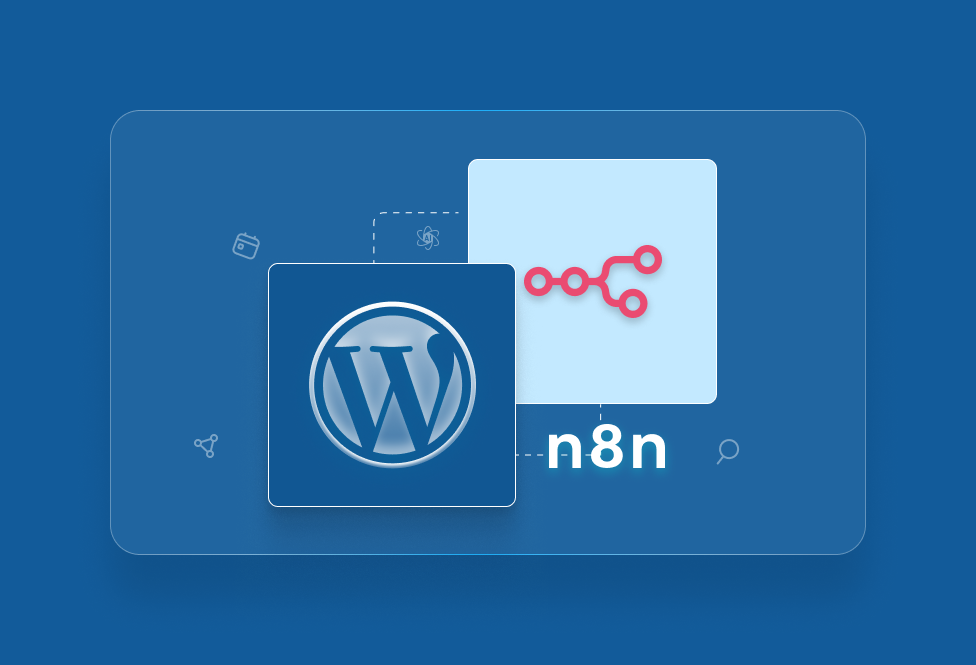Building a fintech startup is tough, Most founders get stuck in slow hiring cycles, high salaries, and a team that can’t scale when you need it to. The reality is that hiring an in-house tech team sounds great until you realize how much time and money it takes. When the market moves fast, being tied down by rigid hiring structures can hold you back instead of pushing you forward.
That’s why more fintech founders are ditching the old-school approach and going with agile tech teams instead.
And in this article, we are going to discuss exactly the same.
We’ll discuss the challenges that come with in-house hiring and we’ll show how hiring an agile.
The Challenges of In-House Hiring for Fintech Startups
Hiring an in-house team comes with a list of challenges that can slow down a fintech startup before it even gets off the ground.
The High Cost of In-House Hiring
Salaries, benefits, office space, software licenses, it all adds up fast.
Fintech startups usually operate with tight budgets, and committing to a full-time tech team can put serious financial strain on the business.
Paying for developers when they’re actively building your product makes sense.
Paying for them when there’s a slowdown? Not so much.
Finding the Right Talent is a Struggle
Good fintech developers are hard to find and even harder to afford.
Whether it’s blockchain, AI, cybersecurity, or RegTech, the best people in the industry are already taken or charging sky-high rates.
And hiring someone just for the sake of filling a role? That’s a risk no fintech startup can afford to take.
Hiring Takes Too Long
Recruiting the right people isn’t an overnight process. Sometimes, it can take months. And even after that, there’s a lot of processes like onboarding, training and team building to think about.
So, while you are spending time hiring, your competitors might be launching new features and expanding into new markets.
Scaling is a Headache
The Fintech industry is moving fast, but hiring full-time employees isn’t exactly a quick process. If demand spikes, you need more hands on deck immediately.
But scaling an in-house team takes time. On the flip side, if the market shifts and things slow down, laying people off isn’t just expensive, it’s a major setback for company morale.
So, for fintech startups that need speed, flexibility, and cost efficiency, relying solely on an in-house team might not be the best move.
And that’s exactly why more founders are turning to agile tech teams instead.
What Are Agile Tech Teams? (In simple terms)
Instead of keeping a permanent team on payroll, fintech startups can work with agile tech teams. It’s a group of highly skilled remote developers, UX designers, DevOps engineers, and security experts who step in only when needed.
Think of it like hiring the best team for specific tasks, rather than keeping a full team on standby all year.
This way, fintech startups save money, move faster, and get access to top talent without being locked into long-term commitments.
Why Fintech Startups Prefer Agile Tech Teams Over In-house Teams?
Faster Time-to-Market
Agile teams work in short sprints, meaning new features, updates, or even a Minimum Viable Product (MVP) can be developed way faster than an in-house team could manage.
- No lengthy hiring and onboarding delays.
- Immediate access to developers who specialize in fintech.
- Faster iteration based on real-time market feedback.
For a fintech startup, every delay can mean losing potential users. Agile teams help you get to market fast and start iterating based on actual customer data, not just assumptions.
Cost-effective and Scalable
Hiring full-time employees for every skill set is expensive and often unnecessary. With agile teams, fintech startups pay only for what they need.
- Need a blockchain expert for a smart contract feature? Hire one for that phase.
- Need a cybersecurity specialist for compliance checks? Bring them in as needed.
- No long-term salaries, no overhead costs. Just a lean, efficient team that adapts to your needs.
Once a project phase is complete, you don’t have to keep paying for a full-time salary. That level of cost efficiency and scalability is something in-house teams can’t offer.
Access to Specialized Skills
Fintech isn’t just about coding, it’s also about compliance, security, fraud detection, and AI-driven automation. Finding one developer who’s an expert in all these areas is nearly impossible.
With agile teams, fintech founders get specialized experts for each part of their project:
- AI & Machine Learning – For fraud detection and automated risk assessments.
- Cybersecurity – To protect user data and prevent financial fraud.
- RegTech Compliance – For adherence to financial regulations.
- Blockchain & Smart Contracts – For decentralized finance (DeFi) and secure transactions.
Rather than struggling to hire an in-house team with every skill needed, fintech startups can collaborate with agile teams that already have the expertise.
Flexibility to Scale Up or Down
Fintech startups don’t have the luxury of predicting exactly when growth will spike or when market conditions will shift. Agile teams let you scale up or down as needed without the financial and legal headaches of hiring and layoffs.
- Need twice the developers for a product launch? Scale up.
- Need to cut back during a slow period? Scale down without layoffs or severance pay.
- Expand into new markets without setting up an entire new office.
In an industry where adaptability is important for survival, agile teams give fintech founders the flexibility they need.
Stronger Compliance and Security Measures
Fintech is among the most regulated industries for obvious reasons – MONEY. A single compliance mistake can lead to heavy fines, legal trouble, or loss of user trust.
Agile teams often have compliance specialists who understand fintech regulations like:
- PCI-DSS (Payment Card Industry Data Security Standard)
- GDPR (General Data Protection Regulation)
- KYC (Know Your Customer) & AML (Anti-Money Laundering)
- PSD2 (Payment Services Directive 2)
So, rather than training an in-house team on these regulations, which takes time and resources, fintech startups can work with agile teams that already know how to implement compliance measures correctly.
In-house VS Agile Tech Teams for Fintech Startups
| Parameter | In-House Team | Agile Tech Team |
|---|---|---|
| Speed of Hiring & Onboarding | Can take months to find and train the right people. | Quick access to specialized talent, reducing setup time. |
| Flexibility & Scalability | Scaling up or down is slow and expensive. | Teams can be scaled on-demand, without long-term commitments. |
| Cost Efficiency | High fixed costs (salaries, benefits, office, training). | Pay only for the required expertise, reducing overhead costs. |
| Access to Specialized Skills | Limited to the expertise of the hired team. | On-demand access to experts in AI, blockchain, cybersecurity, etc. |
| Compliance & Security Expertise | Requires constant training and hiring of compliance specialists. | Teams already have deep knowledge of fintech regulations (PCI-DSS, GDPR, KYC, AML, etc.). |
| Time-to-Market | Slower due to hiring delays and internal workflows. | Faster development cycles with agile sprints and continuous iterations. |
| Technology & Tool Adaptability | May struggle to adopt the latest tools and methodologies. | Agile teams stay updated with emerging fintech tech stacks and frameworks. |
Now, oftentimes, many people doubt working with remote tech teams for multiple reasons. Be it communication gaps, hourly commitments or anything.
But if you know how to do it right, you can save a lot of resources with agile remote tech teams. Here is how you can do it effectively.
How to Work Effectively with an Agile Remote Tech Team for Fintech Startups?
Set Clear Goals & KPIs
Before hiring an agile team, define your project objectives and key performance indicators (KPIs) to measure success. Common fintech KPIs include:
- Time-to-market – How fast can the MVP or new features be launched?
- User adoption rate – How many users sign up or use the feature after release?
- System uptime – Ensuring 99.9% availability for fintech apps.
Clear goals help the agile team align with your expectations and deliver measurable results.
Choose the Right Engagement Model
Not every fintech startup needs the same level of involvement from an agile team. Some require a dedicated team for long-term projects, while others may only need a project-based approach for specific features or compliance upgrades.
If you already have an in-house team but need extra hands, a staff augmentation model can help you scale quickly without committing to permanent hires.
Choosing the right model ensures you get the best value without overspending.
Use Collaboration Tools
Agile teams rely on real-time collaboration and project tracking tools to stay aligned and efficient.
Platforms like Jira help track sprints and tasks, while Slack keeps communication smooth with instant updates.
For documentation and workflow management, tools like Trello, Notion, and GitHub ensure everything stays organized, making remote teamwork feel as seamless as an in-house setup.
Regular Check-Ins & Feedback
Agile development thrives on continuous feedback and iterations. To keep things moving:
- Schedule weekly or bi-weekly sprint meetings to review progress.
- Get regular demos of new features to provide early feedback.
- Keep communication open so developers can quickly adjust to any new requirements.
This ensures your fintech product evolves in the right direction without unnecessary delays.
Final Thoughts
Agile tech teams aren’t just a trend, they’re the future of fintech development. With the industry moving at breakneck speed, fintech founders need to stay lean, flexible, and ahead of the curve.
Hiring a full-time in-house team makes sense for some businesses, but for fintech startups looking to move fast, innovate, and optimize costs, agile teams are the smarter choice.
If you’re building a fintech product and want a team that can help you go to market faster, cut costs, and deliver high-quality results, it’s worth exploring the agile approach.
At Jnext, we follow an agile approach to help FinTech businesses build, scale, and adapt faster. Our dedicated WordPress developers work in close collaboration with your team to deliver products faster.
Whether you are developing a new fintech platform or updating existing one, one team can help!


 April 16, 2025
April 16, 2025





TEAM id
jnext_services
email us [email protected]
india
+91 98587 63596
United Kingdom
+ 44 77679 57915